 Politics
Politics
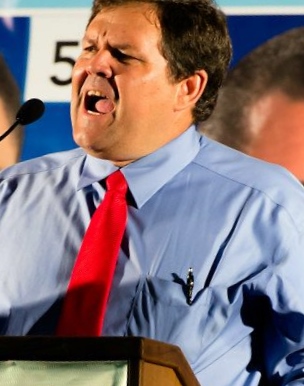
Panton calls for precise info
 (CNS): The need for accurate information on unemployment among Caymanians and their skill sets versus the jobs available will be fundamental to the new government’s goal of putting local workers first, Wayne Panton said Friday. The Cabinet minister said that, at present, the government system that is supposed to match local people out of work with vacancies is simply not working and part of the problem is the lack of accurate information recorded and held by the agency involved. Panton said that while government estimates that unemployment is somewhere between 1,900 to 2,000, it could me more or even less. But the precise information is not available and that needs to be addressed. (Photo by Mark Lewis)
(CNS): The need for accurate information on unemployment among Caymanians and their skill sets versus the jobs available will be fundamental to the new government’s goal of putting local workers first, Wayne Panton said Friday. The Cabinet minister said that, at present, the government system that is supposed to match local people out of work with vacancies is simply not working and part of the problem is the lack of accurate information recorded and held by the agency involved. Panton said that while government estimates that unemployment is somewhere between 1,900 to 2,000, it could me more or even less. But the precise information is not available and that needs to be addressed. (Photo by Mark Lewis)
Panton said government has to have accurate and credible information on not just how many people are out of work but what skill sets or experience those workers hold and exactly what jobs are available in order for it to adopt a better system that will match the two together.
Speaking on the Rooster’s morning radio show, Crosstalk, on Friday, Panton said that the government’s priority was to get unemployed Caymanians back at work, and given that the country has the unique situation where half the workforce are on permits, finding places for locals who need jobs should not be this difficult.
“Our Achilles heel is that we don’t have a system that works properly,” Panton said. “The workforce agency is designed to meet the essential needs of matching vacancies to the unemployed but it isn’t working. We need to understand who are the unemployed Caymanians and what jobs are available and then what the skill sets are of those that are out of work and what are the legitimate requirements of the employers.”
Panton said that while the majority of employers are law abiding and understand that when local people arefully employed the economy functions better, which is better for business, there are some that try and beat the system.
“We need them to know we are not going to sit idly by and accept that happening,” he added. “This government is very much interested in addressing this problem and to ensure that Caymanians are given priority for jobs, training and development as required by law.”
The minister, who has responsibility for financial services, one of the country’s two major industry employers, said the PPM government would not turn a blind eye to infringements regarding work permits and employment in exchange for political support.
“We want a fair system that benefits everyone and there is no reason why we can’t address this given that half the work force is on permits,” he said.
Echoing sentiments expressed by the former UDP labour minister, Rolston Anglin, in an interview with CNS recently about the government’s job agency not functioning properly, Panton said, “We need the best possible information to create the right policies. Without the precise information we can only guess where the problems are … It is essential for us to understand as the policies can only be informed by accurate statistics."
He continued, “Our commitment is to Caymanians, to the economy and to the country. We have a 'Caymanian first' policy and the decisions we make will be about achieving a balance between Caymanians and the needs of the economy and we are taking the necessary steps to implement policies before the end of year.” He added that he was confident the new government would achieve what it set out to do to address unemployment in the local workforce.
Panton emphasised that this government would be enforcing not just the letter of the immigration laws but also the spirit of the law to ensure local people were participating fully in the economy.

West Bay ladies win round 1
 (CNS): The attorney general’s office aborted its motion to strike out a law suit filed against government by four West Bay women in connection with the closure of the West Bay Road, when the parties appeared before Justice Alex Henderson on Thursday. The decision by the AG's office not to try and fight the validity of the case has brought a welcome boost for the ladies, who were expecting to fight to keep their case alive this morning. Instead, a trial date has now been set in December, when a judge will consider the women’s claims and decide if the so-called NRA agreement between government and local developer, Dart Realty, is unlawful on a number of grounds.
(CNS): The attorney general’s office aborted its motion to strike out a law suit filed against government by four West Bay women in connection with the closure of the West Bay Road, when the parties appeared before Justice Alex Henderson on Thursday. The decision by the AG's office not to try and fight the validity of the case has brought a welcome boost for the ladies, who were expecting to fight to keep their case alive this morning. Instead, a trial date has now been set in December, when a judge will consider the women’s claims and decide if the so-called NRA agreement between government and local developer, Dart Realty, is unlawful on a number of grounds.
The case will now be heard in the Grand Court for at least three days, beginning on 11 December, the first available date in the court’s packed schedule.
With the AG’s office changing its mind about arguing that the case had no merit and should be struck out, the judge moved on to the management of the case and pointed to the public interest in the case as he directed the lawyers to find an early trial date.
“This should have some priority given to it,” Justice Henderson stated.
Directing when the parties needed to complete pleadings, submissions, affidavits, evidence and witness summons, he also set a case management conference for the first week in October to ensure that all parties would be on track for the December file.
Following the withdrawal of the AG’s motion to strike out the case, Henderson also awarded costs to the West Bay women for their preparation to fight the AG’s motion. The attorney representing the AG’s office said that, given the circumstances, he could not 'resist the application for costs with any vigour". As a result, the public purse will be footing the bill for the AG’s threat to strike out the case, followed by a U-turn and decision instead to go to trial.
Alice Mae Coe, Annie Multon, Ezmie Smith and Betty Ebanks were delighted that that AG had thought better of his attempts to have their case thrown out. The women all stated that they felt this demonstrated that their case had merit and they were looking forward to pressing their case at trial.
According to the writ filed by the woman in February last year, the woman say that the governor, who is the first defendant, the attorney general, the minister of finance and the National Roads Authority acted unlawfully, as the deal they are all party to is unconstitutional .
Since the women filed their legal claim, a number of changes have occurred, not least a change in the administration, and the minister of finance, in particular, made it clear before the election that he did not support the deal.
In addition, since the claim was filed a part of the stretch of road in question has now been closed and Dart has started talks with the new administration over the deal which was stalled following disagreements between the developer and the former minority government when it attempted to re-balance the deal as recommended by local consultants to try and gain value for money for the public.
Related article on CNS with the original writ filed in February:

Time needed to rebuild trust
 (CNS): The premier has said it will take time for his government to rebuild trust between Cayman and the UK after the last four years. The new administration will need to demonstrate that it can keep its word regarding budget forecasts and manage public finances more carefully before the Foreign and Commonwealth Office (FCO) will consider loosening the knots on government purse strings. Alden McLaughlin said he was pleased that he was able to extend the overdraft facility for the forthcoming financial year, giving some room to manoeuvre. He still wants to renegotiate the terms of the remaining three years on the fiscal plan agreed between the former UDP administration and the FCO but understands the need to re-establish trust first.
(CNS): The premier has said it will take time for his government to rebuild trust between Cayman and the UK after the last four years. The new administration will need to demonstrate that it can keep its word regarding budget forecasts and manage public finances more carefully before the Foreign and Commonwealth Office (FCO) will consider loosening the knots on government purse strings. Alden McLaughlin said he was pleased that he was able to extend the overdraft facility for the forthcoming financial year, giving some room to manoeuvre. He still wants to renegotiate the terms of the remaining three years on the fiscal plan agreed between the former UDP administration and the FCO but understands the need to re-establish trust first.
McLaughlin told CNS that, given the circumstances of the last four years regarding the broken commitments and budget surpluses that never materialized, the FCO and the overseas territories minister will need to see some consistency from the Cayman government and far more prudent management of public finances before they are willing to talk about changing the terms of the plan.
But even at the end of this financial year, the new government will struggle to deliver on the commitment made by former premier McKeeva Bush to the UK last year for a more than $80 million surplus this year.
As a result of pressure on senior civil servants and chief financial officers from the new finance minister, Marco Archer, not to spend their full budgets if they don’t need to, the government appears to be on track to end the year with a surplus of around $50 million, which, given the current economic difficulties, is significant but it is still far short of the predicted figure.
The shortfall in the surplus comes from the failure of government to implement certain legislation in time that would have generated additional revenue and because some areas of predicted revenue simply did not make the expected returns. It was not as a result of over spending.
However, in order to get the UK to ease some of the restrictions and give the CIG more wiggle room to meet the requirements of the Public Management and Finance Law and the various sound accounting principles, such as the parameters for the net debt ratio and cash reserves, the government will need to begin delivering on its commitments, which makes the forthcoming budget for 2013/14 crucial.
McLaughlin said that government would need to demonstrate that it can manage the public purse sensibly and meet its own budget forecasts, as the UK would not simply take it as read that because a new government was in office, the public coffers were in safer hands.
“We will need to show that we can deliver and stick to our commitments,” the premier said, before the UK would be willing to offer more concessions on what is currently a very difficult plan to fulfill without causing undue hardship and further burdens to an already struggling local economy.
The government is currently working on its annual plan for the remaining part of this financial year, which began in July. The passage at the end of last month of the emergency budget has provided a spending plan until the end of October but the full budget is expected to be delivered in September, when the premier said he and the minister of finance will set out how the PPM administration will get Cayman’s finances back on track, with the major projects at the port and the airport underway, and reduce the pressure on the local taxpayer, as promised in their election manifesto.
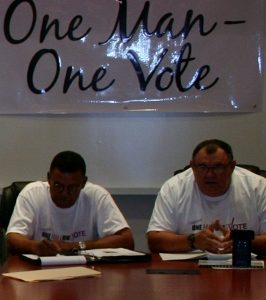
Voter equality recommended
 (CNS): The final report on the May General Election by a mission of international observers has called on Cayman to implement equal suffrage for voters. Pointing to the principle of “one person one vote or equal number of votes”, the observer team said Cayman should make voting more fair. The report recommends a change to the law to stop numbering ballot papers to protect voting secrecy and also suggested reducing the period of residency in Cayman before an elector can register to vote. The required period of residency for candidates prior to the date of nomination should also be reduced, they said, and the legal definition of ‘own act’ clarified in relation to dual citizenship – both issues on which Tara Rivers' election was challenged.
(CNS): The final report on the May General Election by a mission of international observers has called on Cayman to implement equal suffrage for voters. Pointing to the principle of “one person one vote or equal number of votes”, the observer team said Cayman should make voting more fair. The report recommends a change to the law to stop numbering ballot papers to protect voting secrecy and also suggested reducing the period of residency in Cayman before an elector can register to vote. The required period of residency for candidates prior to the date of nomination should also be reduced, they said, and the legal definition of ‘own act’ clarified in relation to dual citizenship – both issues on which Tara Rivers' election was challenged.
The final report was released by the governor’s office on Tuesday and largely gave Cayman the thumbs up for the May 2013 General Elections, which the observers from the Commonwealth Parliamentary Association said met the international standards for democratic, genuine and transparent elections.
The mission found that the campaign allowed different opinions to be expressed freely and the voting and counting process on Election Day were conducted very well. The high voter turnout was also described as a positive sign. The observers said the Elections Office acted in an impartial and transparent manner and demonstrated a high level of professional competence, and from the technical point of view, the elections were very well prepared and administered.
However, the team made a number of recommendations to improve even further what is already a good system. As well as equal suffrage and reductions in the restrictions on candidates and voters, they also recommended establishing an independent election management body with independent budgetary financing, which could further increase the public confidence in the election process.
Following their examination of campaign expenses, the observers recommended a review of the current limits on spending and clarity on the definition of election expenses, as well as addressing the law so candidates could provide reasonable refreshments at campaign meetings.
The report further recommends that voters should not have to state their occupation when presenting themselves to vote and to consider mobile voting for those electors hospitalised after the deadline for application for mobile voting. The group proposed establishing an institute of domestic observers that was independent form the Election Office, with clearly defined rights, responsibilities and accreditation requirements to increase public oversight and confidence in the election process.
It was also suggested that government make an amendment to the Elections Law to remove the requirement that ballot papers contain serial numbers. This, the observers said, would guarantee the right to vote in secret. “Alternative means of protecting the integrity of the ballot, such as the use of bar codes or embossing techniques could be explored instead,” the report stated.
The major recommendations by the mission, such as one man one vote and the issue regarding dual citizenship and residency requirements, are all particularly topical, given the challenge to Tara Rivers election to West Bay.
“Reducing the required period of residency of candidates in the Cayman Islands prior to the date of nomination would open up the universal right to stand for elective office to a larger number of otherwise qualified citizens,”the report said, as it highlighted what was believed to be an unreasonable requirement and one which is at the heart of the challenge made by john Hewitt to Rivers' qualification to run for office.
“A clear legal definition of 'his/her own act' in relation to other citizenship could bring more clarity for the Elections Office when deciding on eligibility of candidates, as well as for potential candidates when deciding whether to contest elections,” the observers add in their recommendation. The issue of clarity has been tested by Rivers' legal team, who insisted that the law allows her to keep and use her American passport, which was acquired by birth and has not required an act of allegiance to a foreign power.
The recommendation for equality in the vote is expected to be addressed by the new government, who were elected to office on a mandate of introducing one man one vote.
Although the observers made fourteen recommendations, the report was a positive reflection on the general election, which they said met international standards.
“The overall conduct of voting operations was assessed by the EOM observers as very good or good in all polling stations,” the report stated. “The procedures were followed, polling staff was generally well trained and polling agents representing different candidates were present in all polling stations. The counting procedures were followed, votes were counted in a transparent manner in the presence of counting agents representing different candidates and no recount was requested.”
The mission also found that the election campaign "was conducted in a peaceful atmosphere, candidates were able to campaign freely and voters were able to receive sufficient information to make an informed choice. The fundamental rights and freedoms, such as freedom of expression, freedom of assembly and freedom of movement were respected at all times.”
The new elections supervisor, Wesley Howell, said the report would be considered and discussed with all relevant stakeholders.
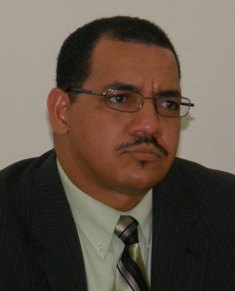
CIG must put ‘foot down’
 (CNS): The former education and employment minister has warned that government must do something soon to prevent employers from avoiding hiring local people. Reflecting on his time in office, Rolston Anglin said he was disappointed that changes at the labour agency did not move as quickly as he would have liked during his tenure, but in order to prevent spiralling unemployment the new government will need to “put its foot down” and ensure employers started to hire those Caymanians who are out of work before work permit holders. He said that Cayman had to face the fact that too many employers actively avoid taking on local workers.
(CNS): The former education and employment minister has warned that government must do something soon to prevent employers from avoiding hiring local people. Reflecting on his time in office, Rolston Anglin said he was disappointed that changes at the labour agency did not move as quickly as he would have liked during his tenure, but in order to prevent spiralling unemployment the new government will need to “put its foot down” and ensure employers started to hire those Caymanians who are out of work before work permit holders. He said that Cayman had to face the fact that too many employers actively avoid taking on local workers.
“With the economy and population growing so much, we have now reached a point where there are large numbers of employers who simply don't want to hire Caymanians,” he said. “It is happening. Quite honestly, it is why I supported the move to restrict certain categories of employment for local workers. It was not about keeping the low paying or poor jobs just for Caymanians, it was about genuinely protecting them. Many countries have strict criteria on job visas in certain areas of employment, as employers will choose cheap foreign labour whenever they can.”
Anglin said that the government he was a part of made more strides with the labour agency than people will give them credit for, but he said there were issues regarding the implementation. If the groundwork that was set during the previous administration was built upon, he said, people would see some improvements, but warned that there was no “magic silver bullet” to address the issue in the short term.
However, he said government must “put its foot down" and put Caymanians at the forefront of the labour market.
Given the difficulties of being able to ensure that vacancies are filled by local workers, Anglin questioned whether government was the best agency to find jobs and place people in them. The former minister suggested government should be giving some consideration to privatizing the function of job placement.
“It is possible that a revamped labour unit may function better out of government hands and in the private sector,” he said, reflecting on the failure of the unit to match Caymanians to the many, many job openings in Cayman that were filled by work permit holders.
According to the compendium of statistics released last week by the Economics and Statistics Office, there were more than 1,900 unemployed Caymanians at the end of 2012 in the local labour force, with a 10.5% unemployment rate among local people. However, as of 31 March, more than 20,400 work permits had been granted.
Matching the two together has been a continuous problem for the government as the job agency does not actively seek to match its data of unemployed Caymanians with the permits that are passing through the boards. The ongoing lack of connection and political will to truly act on the situation as a result of government’s dependency on the revenue has led to the increased unemployment figures and the mounting frustration in the community that the simple enforcement of the immigration laws over permits could address the unemployment situation.

Loans will be tendered
 (CNS): With the Cayman Islands government still carrying a considerable debt burden and with various bullet loan payments due over the next few years ahead of the bond of $260 million due in 2019, the premier has pointed to the pressing need to re-finance the public debt. Alden McLaughlin said this was his government’s next priority, alongside the forthcoming 2013/14 full budget, and they would be using an open tendering process to ensure transparency and the best possible value for money for government coffers. Towards the end of his tenure the former premier, McKeeva Bush, also attempted to repackage the debt but his failure to follow process meant his attempts were stopped by UK officials.
(CNS): With the Cayman Islands government still carrying a considerable debt burden and with various bullet loan payments due over the next few years ahead of the bond of $260 million due in 2019, the premier has pointed to the pressing need to re-finance the public debt. Alden McLaughlin said this was his government’s next priority, alongside the forthcoming 2013/14 full budget, and they would be using an open tendering process to ensure transparency and the best possible value for money for government coffers. Towards the end of his tenure the former premier, McKeeva Bush, also attempted to repackage the debt but his failure to follow process meant his attempts were stopped by UK officials.
CNS recently revealed some of the correspondence relating to those efforts outside of the official tendering process, obtained through an FOI request. However, as the finance ministry has not yet released all of the correspondence relating to those efforts and redacted some documents, the full details of what happened to Bush’s proposal to give the loan deal to Caledonian Bank have not yet been revealed.
It is apparent, however, that the UDP leader in his role as finance minister had refused to tender the public financing repackage despite advice to do so from the financial secretary.
Speaking to CNS last week, McLaughlin said that having secured the necessary cushion for Cayman’s short term borrowing from the UK with an increased overdraft facility, the next most important issue was to refinance the loans and move away from the bullet bond-type borrowing that Cayman has used and to set up a sink fund to repay the principal debt.
“Whatever steps we take, however, the borrowing will go to tender via the correct channels,” he confirmed, adding that it would be an open and transparent process.
McLaughlin had been a major critic of the way that the former premier had attempted to deal with government loans, in particular the failed and controversial attempt to refinance a large part of it via Cohen and Co. That effort cost the public purse some $450,000 in fees, Auditor General Alastair Swarbrick reported, even though the deal with the New York financiers never came to fruition. At the time, Bush announced that he had usurped the tendering process for the loan as, he claimed, the deal with Cohen would save millions on the public debt.
McLaughlin said that his government would move forward with refinancing via a full open tendering process, which will be managed by the Central Tenders Committee without political interference.
In the Office of the Auditor General report relating to the management of procurement, the Cohen deal was used as a case study and led Swarbrick to offer advice to government going forward regarding public debt. He said the finance ministry needed to develop a debt risk management framework and to ensure future borrowings are obtained with due regard for value for money.
The auditor general found that the decision to contract with Cohen & Co was made by Bush against the advice of Ministry of Finance officials.
Swarbrick recommended that in future the government should follow the financial regulations related to the procurement of supplies, services and assets and should only deal with lenders that are well known in the financial domain.
CIG pays more than $30 million each year to service its debt, which currently amounts to around $500 mllion.
Related articles on CNS:
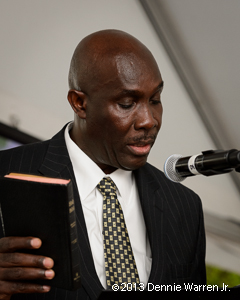
AG in awkward position
 (CNS): Despite being a co-respondent in the election petition heard in the Grand Court last week, the attorney general has remained largely silent on the question of Tara Rivers’ qualification. The government lawyer has also been quiet regarding the actions of the returning officer in West Bay who accepted the Coalition for Cayman’s candidacy on Nomination Day, whom he is representing. Although the question over the actions of the returning officer only arise if the chief justice finds that Rivers is not qualified, Attorney General Samuel Bulgin’s defence of those actions may prove to be a conflict, since his office is understood to have given the advice on which the Elections Office disqualified Richard Christian, a proposed PNA candidate in Bodden Town.
(CNS): Despite being a co-respondent in the election petition heard in the Grand Court last week, the attorney general has remained largely silent on the question of Tara Rivers’ qualification. The government lawyer has also been quiet regarding the actions of the returning officer in West Bay who accepted the Coalition for Cayman’s candidacy on Nomination Day, whom he is representing. Although the question over the actions of the returning officer only arise if the chief justice finds that Rivers is not qualified, Attorney General Samuel Bulgin’s defence of those actions may prove to be a conflict, since his office is understood to have given the advice on which the Elections Office disqualified Richard Christian, a proposed PNA candidate in Bodden Town.
During the second day of the case Bulgin asked just a few short questions of Professor David Rowe, the expert witness called by the election petitioner, John Hewitt, when he gave evidence on why he believes that Rivers is not qualified and had shown allegiance to the United States by taking out and using an American passport past the age of majority.
Bulgin asked Rowe, who has given evidence in similar cases in Jamaica, if that evidence would have been different if the wording of the Jamaican constitution had included what the AG described as a “carve out” for those born overseas, as is the case with the Cayman Islands Constitution. Rowe was not able to give a definitive answer, however, as he said it would depend on many other issues.
Abraham Dabdoub, the attorney representing Hewitt, whose wife, Velma Powery Hewitt, lost the election, argued that thesection referred to as a "carve out" by the AG was not an exception. The expert in election petitions in the region also observed the AG’s failure to make any submissions during the three day hearing.
He said he was disappointed that they would not hear from the attorney general regarding his legal interpretation of the petition.
“It is a bit disappointing to hear that the learned attorney general has declined to make any submissions,” Dabdoub said. “I would invite him to contribute, however, as here is an allegation against a returning officer and this is a major constitutional issue." But it was clear that Dabdoub was well aware of Bulgin’s position, having placed a copy of the letter sent to Christian, which included the AG’s thoughts on the matter, into evidence.
During his closing submissions Dabdoub focused on the wording of Section 61 and that the so called “carve out” merely acknowledged the fact that people will have citizenship from another country because they were born there and, provided they don’t act on their right to dual citizenship, they can run for office.
Bulgin’s description of the section as a “carve out”, however, places him in a difficult position as he had already given written legal advice to the Elections Office regarding the question of Christian and the returning officer’s refusal to accept his nomination on the basis that he had applied for and had used an American passport past the age of majority. Christian, like Rivers, was born in the US to Cayman parents, and so is entitled to dual citizenship.
It is understood that Christian admitted that he had the passport but believed that the same section of the constitution was a carve out for him, hence his openness about the document. But the Bodden Town returning officer disagreed and the formal rejection of Christian's nomination is understood to have been set out in writing by the returning officer, who took advice from the AG.
However, Bulgin, who is a co-respondent on behalf of Delano Solomon, the West Bay returning officer, by his defence of the petition has not accepted any liability that the election official should not have accepted Rivers’ nomination.
It is not clear how Bulgin will defend the returning officer, who the petition alleges was derelict in his duties and did not make sufficient enquiries to establish if Rivers was qualified. It is understood that the officer offered Rivers the voluntary declaration form, which she refused to sign. Further enquiries about her qualification were allegedly made by the Elections Office.
Having already given an opinion of the disqualification of Christian, the attorney general has not been in a position to make any public defence over the qualification of Rivers, but nor did he make any moves before the election to recommend that she also be disqualified.
If the CJ finds against Rivers, who is now the education minister, in his anticipated ruling, then Bulgin may be forced to defend the actions of Solomon. However, if the country’s top judge rules that Rivers was qualified, the AG may be facing even greater legal difficulties with Christian possibly filing suit.
Kent McTaggart, a C4C member who had planned to run in the Bodden Town district, may also consider a suit regarding his own position. McTaggart made a decision to pull out of the political race ahead of Nomination Day based on information he received from the Elections Office about what wassaid to be his failure to meet the residency requirement in the seven years preceding an election – the second ground on which Hewitt brought his petition against Rivers.
Related articles on CNS:
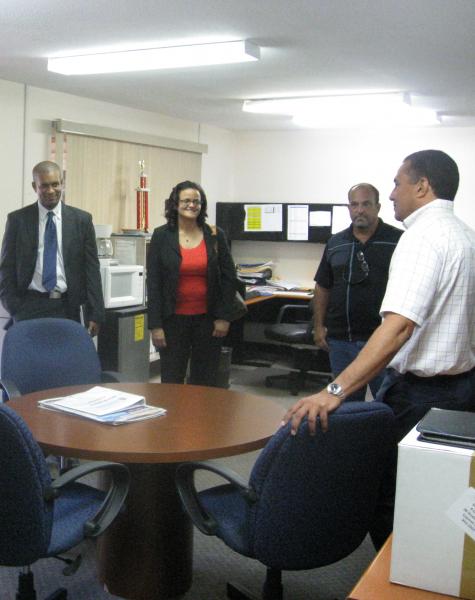
Rivers returns to work following courtroom drama
 (CNS): The education minister was back to work Monday, as she returned her attention to issues regarding education and employment after three days in the Grand Court fighting to keep her West Bay seat. With the courtroom drama in limbo until the chief justice delivers his decision,Tara Rivers will be focusing on the issues facing her ministry, which include rising unemployment among Caymanians and the myriad problems still impacting local schools. Hopeful of a positive result, Rivers recently visited the Department of Education Services (DES) to meet with staff. She was accompanied by backbench MLA Winston Connolly, who has been given the role as councilor in her ministry.
(CNS): The education minister was back to work Monday, as she returned her attention to issues regarding education and employment after three days in the Grand Court fighting to keep her West Bay seat. With the courtroom drama in limbo until the chief justice delivers his decision,Tara Rivers will be focusing on the issues facing her ministry, which include rising unemployment among Caymanians and the myriad problems still impacting local schools. Hopeful of a positive result, Rivers recently visited the Department of Education Services (DES) to meet with staff. She was accompanied by backbench MLA Winston Connolly, who has been given the role as councilor in her ministry.
During the visit she met with Chief Education Officer Shirley Wahler to discuss the role of the department and went on a tour to meet departmental staff.
“It’s important that councillor Connolly and I meet with the departments that fall under the ministry, to understand their responsibilities, workings and issues they face so that we can all work together to improve the services provided to the public,” Rivers said, adding that she looked forward to further departmental meetings in the future.
“I now have a better understanding of what occurs at the DES and how it interacts with the ministry,” said Connolly. “I look forward to working with the chief education officer and her team throughout the next four years.”
With Rivers' continuation in office still very much in question, government officials said that the minister would nevertheless be continuing with familiarization visits, including the Cayman Islands Public Library Service, the Sunrise Adult Training Centre and UCCI.

Officials volunteer details of premier’s vacation
 (CNS): The Cayman Islands premier is taking a ten day vacation in the UK and the USA, officials have confirmed. The premier’s office voluntarily sent out a short release Monday morning stating that Alden McLaughlin would be away from the Cayman Islands between the 21 and 31 July. McLaughlin has headed first to the UK, where he will attend the university graduation of his son, Daegan, on 23 July, and then he will take some vacation time in the United Kingdom followed by some time in Florida. With the premier taking some down time, Deputy Premier Moses Kirkconnell will be holding the reins until the premier is back at his desk on 1 August.
(CNS): The Cayman Islands premier is taking a ten day vacation in the UK and the USA, officials have confirmed. The premier’s office voluntarily sent out a short release Monday morning stating that Alden McLaughlin would be away from the Cayman Islands between the 21 and 31 July. McLaughlin has headed first to the UK, where he will attend the university graduation of his son, Daegan, on 23 July, and then he will take some vacation time in the United Kingdom followed by some time in Florida. With the premier taking some down time, Deputy Premier Moses Kirkconnell will be holding the reins until the premier is back at his desk on 1 August.
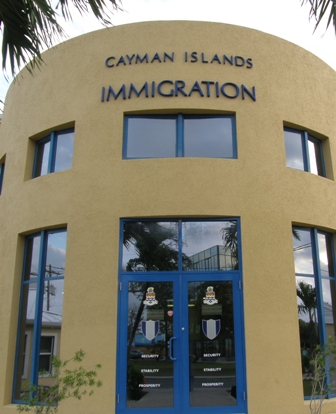
WP holders to get 10 years
 CNS): The PPM administration is planning to move quickly on major changes to the immigration law and policies, as promised during the election campaign. The government is abolishing the key employee status, enabling all work permit holders to stay in the Cayman Islands for up to ten years and apply for permanent residency after eight. Cabinet has agreed that these major changes to the legislation will be implemented in two phases. Phase One will include extending the term limit for work permit holders to ten years, the removal of ‘key employee’ and amending the requirements for permanent residence, which will be scheduled to take effect by the end of October.
CNS): The PPM administration is planning to move quickly on major changes to the immigration law and policies, as promised during the election campaign. The government is abolishing the key employee status, enabling all work permit holders to stay in the Cayman Islands for up to ten years and apply for permanent residency after eight. Cabinet has agreed that these major changes to the legislation will be implemented in two phases. Phase One will include extending the term limit for work permit holders to ten years, the removal of ‘key employee’ and amending the requirements for permanent residence, which will be scheduled to take effect by the end of October.
The PPM had promised some time ago that, if elected, they would drop the seven year term limit and the associated key employee and make the PR application the place where government will decide who should stay or go. In his role as opposition leader, the now premier, Alden McLaughlin, had spoken about the need to ensure different types of people got to stay in Cayman and not just those from the financial services sector.
In a release from the new home affairs ministry at the weekend, officials explained that Phase Two will be a full scale review of the work permit system, with the intention of improving the efficiency and effectiveness of the process.
Following through on the commitments made in the Progressives’ Manifesto and taking into account the recommendations of the Term Limit Review Committee, officials said that Cabinet had agreed to extend the length of time that a worker may remain in the Islands on a work permit from seven to ten years.
“At the same time the key employee aspect of the term limit policy will be abolished and all work permit holders who have resided here for at least eight years will become eligible to apply for permanent residence,” the release stated.
Term Limit Exemption Permit holders will be allowed to return to an ordinary work permit up to their ten years and apply for PR.
As a result of the increase in the number of people who will be able to apply for PR, the home affairs ministry is reviewing how PR is granted. It will focus on redefining the assessment criteria to align with the government’s economic, cultural and social objectives.
“The aim is to ensure persons granted Permanent Residence are drawn from a diverse cross-section of our society and are also assets to the community,” the officials stated. The new criteria will also take into account the impact of removing the initial filter of key employee and will speed up the appeals process by removing as quickly as possible those without merit.
In the second phase, government will tackle the even bigger issue of processing work permits to “reduce bureaucracy and eliminate the current system of boards and the way work permits are processed to ensure Caymanians are given the opportunity to participate fully in the local economy.
“With over 20,000 work permit holders in Cayman’s workforce, coupled with over 1,500 Caymanians registered as unemployed, the processing of work permit applications is critically important to Cayman’s economic and social fortunes. The system must be fair, reliable, efficient and transparent,” the ministry officials stated.
The committee that will review the entire WP process will include members of the business community and is expected to submit recommendations for legislation and polices by January.
See full release below.